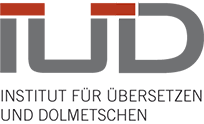Bachelor of Arts in Translation Studies for Information Technologies (BATSIT)
General Information
Enrolment information
Why study to be a technical translator?
Requirements
Course Objectives
Course Structure
Contact
Further Information
Translation Studies Q&A
General Information
| Degree: | |
| Application and Enrolment: |
There are No admission restrictions for the Bachelor of Arts in Translation Studies for Information Technologies. Application and enrolment are processed via Heidelberg University’s application portal heiCO. |
| University cooperation |
Mannheim University of Applied Sciences, Faculty for Electrical Engineering and Computer Science University of Heidelberg, Institute for Translation and Interpreting Two study sites: Mannheim and Heidelberg |
| Start of course: |
Winter semester only |
| Course duration: |
6 semesters |
| Language proficiency: |
Excellent mastery of German and English |
| Language of instruction: |
German and English |
| Accreditation: | The course of studies fulfills the accreditation requirements stipulated in the quality management system heiQUALITY (accreditation certificate). |
Enrolment information
- Unlimited admission: Prospective students from Germany and international students can apply and enrol from June 1 until September 30.
- Matriculation always takes place at the start of the winter semester.
- Application and enrolment must be done online via heiCO.
- Information on application and matriculation can be found here.
- Important: Internationale applicants should apply as early as possible. So that your application can be processed in time.
- Further information about the enrolment (matriculation) for international students:
- Enrolment for international students
Why study to be a technical translator?
Technical translator – Why?
Today internationalization and global networking are found in all areas of our lives – the economy and politics as well as culture and leisure activities. Translations are gaining in importance.
Linguistic skills alone are not enough
In fact, it is crucial that translators understand technical contexts in technical texts, and also have the required specific terminology at their finger tips. This is why our students are trained in both areas – language and technology.
Requirements/Career Prospects
Technology and language
Applicants for the Translation Studies for Information Technologies degree programme should be interested in languages and culture, and also be enthusiastic about technology. Another requirement is German and English language skills at a high level.
Professional translators are in demand, particularly in the area of information technology. Experts with language skills who can write and translate technical texts are very much sought-after. Our graduates find jobs in business, as well as in authorities and associations.
Course Objectives
This degree course teaches both technical and linguistic skills, and to meet these different demands is taught as a cooperative programme.
Hochschule Mannheim: Departments of Electrical Engineering and Computer Science
Hochschule Mannheim is responsible for teaching the computer science and automation technology parts. Students perform a large number of lab exercises parallel to lectures, thus enabling them to gain individual practical experience. These are important for ensuring a global understanding of technical issues.
Heidelberg University: Institute for Translating and Interpreting
The Institute for Translating and Interpreting is responsible for teaching linguistic and cultural skills. The initial focus is on introducing the methods and theories of translation studies; actual professional translation is taught at the next stage.
Lectures are taught at both campuses, half at each. Courses are taught in German; some of the courses at Heidelberg University are taught in English.
Course Structure
Standard course duration for the B.A. programme including examinations is six semesters. Teaching takes place over a period of six semesters, but in the final semester classes are only held for two months. To graduate, students are required to accumulate 180 ECTS credits from compulsory and compulsory-elective classes offered, which correspond to 120 hours of classes.
The Bachelor's programme is divided into four semesters of introductory translation studies and two semesters of advanced translation studies.
|
FOUNDATION COURSE (4 semesters)
|
||
| semester 1 and 2
|
HS Mannheim
|
Uni Heidelberg
|
|
Orientation Examination
|
||
| semester 3 and 4 |
HS Mannheim
|
Uni Heidelberg
|
|
Intermediate Examination
|
||
|
ADVANCED STUDIES (2 semesters)
|
||
| semester 5 and 6 |
HS Mannheim
|
Uni Heidelberg
|
| semester 6 |
Bachelor's Thesis and Thesis Defence |
|
Contact
Academic Advisor
at Mannheim University
Dean of Studies
Prof. Dr. Hübner
c.huebner@hs-mannheim.de
Academic Advisor
at Heidelberg University
Michael Prien
michael.prien@iued.uni-heidelberg.de
Questions on enrolment
Heidelberg University,
Service Portal for Students
General Questions related to studies
at Heidelberg University
studium@uni-heidelberg.de
+49 6221 54 54 54
Further Informationen
Translation Studies Q&A
Detailed answers to frequently asked questions about the course of Translation Studies are provided in our Course Guidelines. For further questions please contact the academic advisor in the respective Department.
Further information about the programme (current examination regulations and the module manual) can be found under Im Studium.

